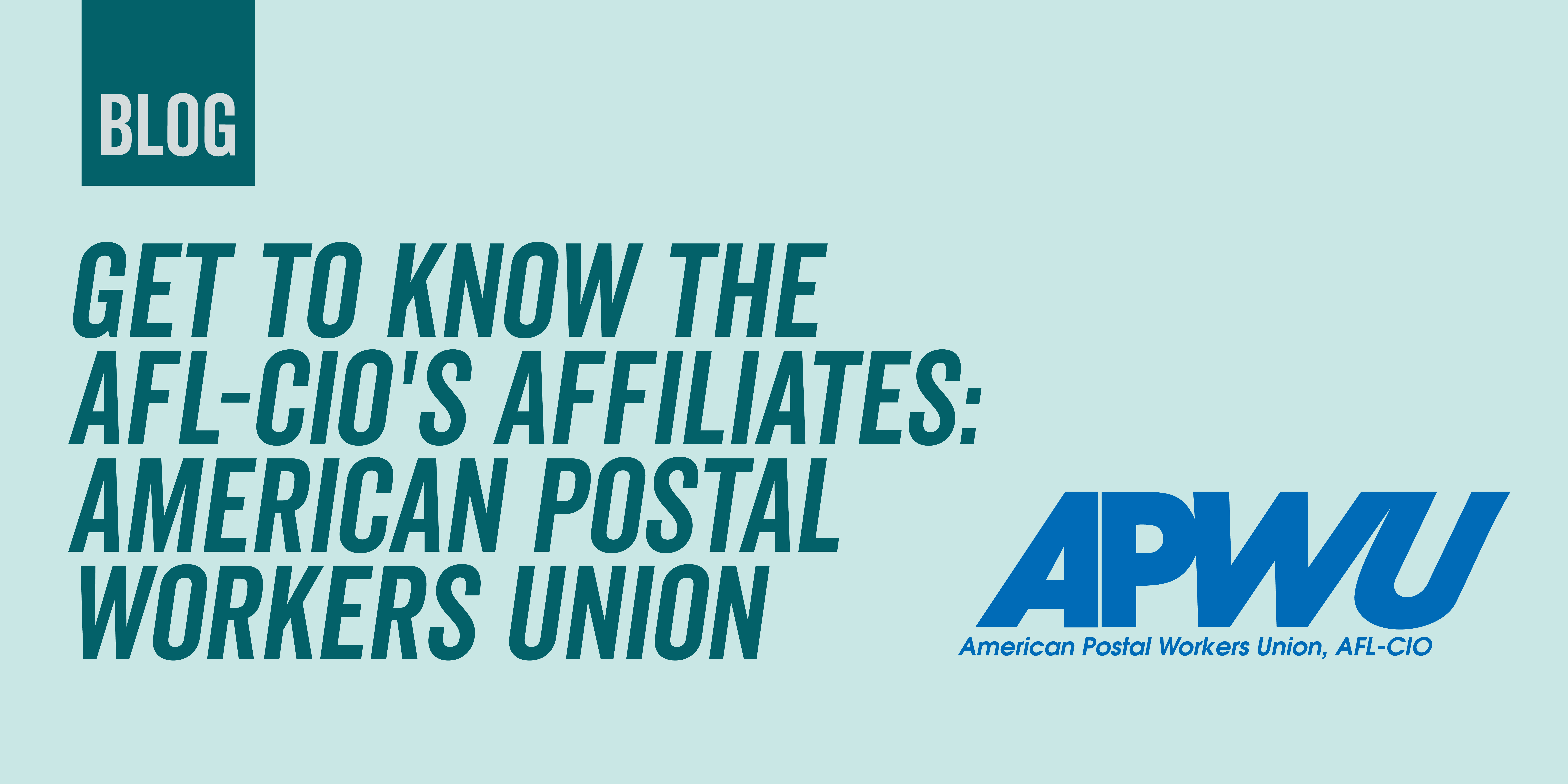
Next up in our series that will take a deeper look at each of our affiliates is the American Postal Workers Union (APWU). The series will run weekly until we've covered all 55 of our affiliates.
Name of Union: American Postal Workers Union
Mission: Through collective bargaining, legislative action and mobilization of its members and the public, APWU fights for dignity and respect on the job for postal workers throughout the postal industry—for decent pay and benefits and safe working places, for defense of the right of the people to public postal services and for solidarity with all workers, at home and abroad.
Current Leadership of Union: Mark Dimondstein was elected president of APWU in 2013 and won a second term in 2016. He began his postal career in 1983. In 1986, he was elected to the first of six consecutive terms as president of the Greater Greensboro (N.C.) Area Local. Beginning in 2000, he served as APWU's national lead field organizer. He won AFL-CIO's Southern Organizer of the Year Award in 2001.
Debby Szeredy serves as APWU’s executive vice president, Elizabeth Powell serves as secretary-treasurer and Vance Zimmerman is the industrial relations director. The national executive board also includes four craft division directors who oversee the clerk, maintenance, motor vehicle service and support service crafts at the United States Postal Service (USPS), as well as five regional coordinators.
Current Number of Members: 222,000.
Members Work As: Retail postal clerks, mail processors and sorters, building and equipment maintenance, custodial workers, truck drivers and mechanics, information technology workers, nurses and others.
Industries Represented: Members are active and retired workers for the USPS, as well as private-sector workers employed in the mailing industry.
History: The American Postal Workers Union was founded on July 1, 1971, when five postal unions merged after the Great Postal Strike in 1970. The two largest unions involved in the merger were the United Federation of Postal Clerks—which represented employees who "worked the windows" at post offices and workers who sorted and processed mail—and the National Postal Union—who represented postal workers in multiple crafts. The National Association of Post Office and General Service Maintenance Employees, the National Federation of Motor Vehicle Employees and the National Association of Special Delivery Messengers were the other three unions who merged to create the APWU.
Before the Great Postal Strike, early postal unions essentially had no collective bargaining rights, with wage increases dependent on the whims of Congress, i.e. "collective begging." As a result, postal workers were chronically underpaid, barely making enough to make ends meet.
Workers grew increasingly frustrated with Congress’ inaction, and on March 18, 1970, thousands of New York City postal workers walked off the job in protest, starting the Great Postal Strike. During the strike, mail service ground to a halt and the plight of postal workers was brought to the public’s attention. The strike was soon settled, with Congress approving a 6% wage increase and other gains for postal workers.
The strike motivated the enactment of the Postal Reorganization Act of 1970, which granted unions the right to negotiate with management over their wages, benefits and working conditions.
Since that first contract almost 50 years ago, the APWU has fought for dignity and respect on the job for the workers they represent, as well as decent pay and benefits and safe working conditions. As a result, the postal unions have achieved unprecedented job security provisions.
Current Campaigns: APWU is a partner in A Grand Alliance to Save Our Public Postal Service that fights back against efforts to dismantle the USPS. APWU has many current campaigns to protect the workers and customers of the USPS, including fighting: against privatization, for a fair and decent contract protecting their entire bargaining unit, against post office closures and to promote safe postal jobs. With the solidarity of the labor movement and community allies, the APWU led the successful "Stop Staples" fight against the privatization of postal retail services.
APWU is also pushing for postal banking as a way to expand basic financial services to those whose needs are unmet by the corporate-dominated financial sector, and protect them from the predatory Payday Loan and check cashing industry.
Community Efforts: The American Postal Workers Accident Benefit Association provides insurance and pays benefits to postal workers and their families in the case of accidental death or disability. The E.C. Hallbeck scholarship provides educational benefits for children of APWU members while the vocational scholarship program helps the children of APWU members pursue trade, technical, vocational or industrial occupations. The Postal Employees Relief Fund helps postal workers and their families recover from natural disasters and house fires. The APWU promotes strong alliances and common bonds between the labor and civil rights communities.

